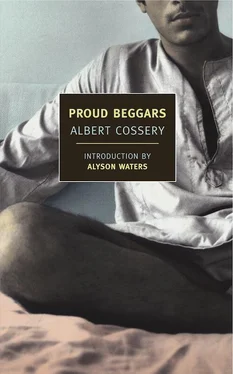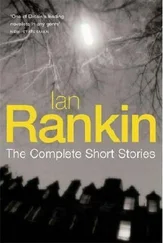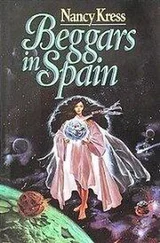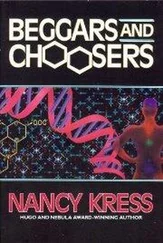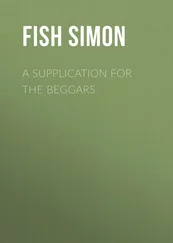Yeghen shook himself, as if to chase away the cold. He felt a rustling against his leg, then heard a soft purring: the cat. Where had it been hiding? He leaned down to get it, put it on his lap, and began to stroke it. The little animal purred, its eyes fixed on him, as if waiting for something. One day Yeghen had decided to have a bit of fun by giving the cat a miniscule ball of hashish, and since then, he had done so each time he had the chance. It was surely the only cat in the world that indulged in narcotics. It seemed to have acquired a taste for this delicacy; it began to grow edgy and tried to scratch him. Yeghen found himself in a delicate situation; he only had a small quantity of the drug and he certainly wasn’t going to share it with the cat. A whim had its limits. But how could he make it understand?
He managed to get rid of the cat and again looked at his mother. She had returned to her work, as though she were indifferent to everything but her inner dream. She must be dreaming that she was living a peaceful existence with her son — an honest, hardworking son — with dignity and respect for the law. Yeghen intuited this dream; he could even divine the exact unreeling of the images. He suddenly thought of his latest idea, the ultimate inspiration of his inventive genius. If she ever suspected that he was about to beg money for her burial! He was tempted to tell her, just to see her face. Would she curse him? She had never before used that privilege. A mother’s curse! Yeghen couldn’t help laughing.
She abruptly stopped sewing and seemed surprised and shocked.
“How can you laugh, my son?”
“You want me to cry?”
“You’re not ashamed to mock my misery?”
“It’s not that, Mother. It’s simply that an idea came to me.”
“I don’t understand,” she said bitterly. “I will never understand. How can you laugh in this miserable house!”
This she could never forgive: his frivolity in the face of misery. He never appeared to take misery seriously. She would have liked to see him ashamed and resigned, moping his life away. How could he laugh at the sacred state of misery?
Anyway, it was time for him to go; the atmosphere was becoming oppressive. He shrank down in his chair, withdrew deeper into the shadows, and grinned. The most difficult part was yet to come.
“Mother!” he whined.
Since she didn’t want to see him laugh, well then! He would cry if necessary.
“Now what do you want?”
“Could you give me five piasters, Mother?”
She sighed like a trapped animal.
“Again! When will you realize that I am poor?”
“I know that, Mother.”
“You don’t seem to know it.”
“If I didn’t, I would have asked for a lot more.”
“What cynicism! My God! And to think that your father was such an honorable man!”
That was fatal. Yeghen knew the ritual; he would have to hear everything, to negotiate right to the end.
“Leave my father out of it. I need this money.”
“I only have the rent money. If you want to eat, there is lentil soup.”
Eat that soup! Never. Rather die of hunger. His mother’s soup was the supreme insult to his optimism; it reeked of good intentions and respectable poverty. He would never be able to swallow it. Any humiliation but that. Besides, food mattered little to him.
“It isn’t for food,” he said.
“Unfortunately, I don’t have chicken to offer you.”
“I don’t want chicken, Mother. I’m simply not hungry.”
She knew he took drugs, but she forbade herself the smallest allusion to it; she preferred to discuss useless things — for example, this lentil soup that she wanted to force down him. Yeghen guessed her inmost thought; she imagined that he needed money to buy drugs. This reminded him of an odious episode that had happened that very afternoon, and he groaned with rage. A policeman he’d met on the street had relieved him of a big piece of hashish under the vague pretext of a search. The behavior of these bandits infuriated him, especially as it was impossible to defend himself. What a nasty brood, those policemen. All this hashish they carried off and allegedly threw in the river! They weren’t that dumb! They surely sold it back on the market, and at a higher price than the dealers.
It was undeniable that, besides drugs and food, a man needed to have some money in his pocket. His situation as parasite and beggar did not prevent Yeghen from being lavish — on the contrary. No doubt he had inherited this taste for ostentatious spending from his father. He enjoyed the luxury of paying for others, of aiding those more unfortunate than himself — Gohar, for example. He knew Gohar was always short of money and that he didn’t ask for anything, not out of dignity but because of his simple indifference to material things. Yeghen made a point of helping him as much as he was able. Gohar was the only person he’d met who wasn’t offended by his physical or moral ugliness, the only being with whom he felt in perfect harmony. Gohar was neither a reformer nor a moralist; he took people as they were. Yeghen had never found this trait in any other person; most people tried to give advice like his mother. Fundamentally, his mother was just like most people in this respect.
He was afraid to feel pity and laughed nervously. No, he wasn’t mean to her. She defended herself in her own way, and in some respects, even, she was stronger than he. No force in the world could shake her stubbornness in misfortune. She enjoyed her sadness, not understanding that one can laugh despite the gravest deprivations.
He knew she would yield in the end and give him the money. She only made him beg so much to keep him near her as long as possible; she believed her good example would be contagious. All this love, this monopolizing sweetness, was solely intended to make him bow before the demands of poverty. Poor woman! She didn’t know that she had given birth to a monster of optimism.
He’d had enough; he had devoted sufficient time to her.
“Are you going to give me the money?”
For a long time she did not move, paralyzed by discouragement. So she was going to lose him again. This lamentable, perverted son was, nevertheless, her last link to the living, and she would never manage to hold him, to guide him onto the straight path. Slippery creature in the devil’s grip, he always slid through her fingers. His laugh was the only thing of his she would keep, this laugh that blasphemed against her poverty. She could not understand his insensitivity to what she felt to be the only dignity in the universe: submission in misfortune. Long afterwards, in this sinister apartment, she would hear his laugh, more terrible than a cry of revolt. She could have accepted revolt, perhaps, but not derision.
She didn’t doubt that all her sacrifices would be in vain; money was the least precious of her gifts. She had deprived herself of everything for him; only her life was left to give. Why didn’t he take her life? Would he come one day to murder her? She expected anything from him.
“You’ll kill me in the end,” she said.
“Of course not, Mother. What a dramatic idea! Life is simpler than that. Give me the money and I’ll go. That’s all. There’s nothing tragic about it, I assure you. Where is the drama? You’re the only one who believes the world is serious; the world is gay, Mother! You should go out and enjoy yourself a little.”
She looked at him without surprise, as if she’d just heard the words of a madman whose ravings were long familiar to her. What to do? She sighed and stood up. With a hesitant step, as if she were leaning on invisible crutches, she disappeared into the room’s shadow where her wizened form dissolved. Yeghen could barely glimpse her. She stopped before the buffet’s black bulk, opened a drawer, and began to rummage around inside.
Читать дальше
